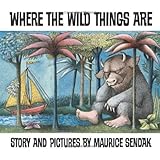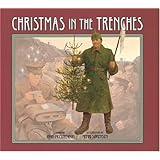
ah, poems amount to so little when you write them too early in your life. You ought to wait and gather sense and sweetness for a whole lifetime, and a long one if possible, and then, at the very end, you might perhaps be able to write ten good lines. For poems are not, as people think, simply emotions (one has emotions early enough) -- they are experiences. For the sake of a single poem, you must see many cities, many people and Things, you must understand animals, must feel how birds fly, and know the gesture which small flowers make when they open in the morning. You must be able to think back to streets in unknown neighborhoods, to unexpected encounters, and to partings you had long seen coming; to days of childhood whose mystery is still unexplained, to parents whom you had to hurt when they brought in a joy and you didn't pick it up (it was a joy meant for somebody else -- ); to childhood illnesses that began so strangely with so many profound and difficult transformations, to days in quiet restrained rooms and to mornings by the sea, to the sea itself, to seas, to nights of travel that rushed along high overhead and went flying with all the stars,--and it is still not enough to be able to think of all that. You must have memories of many nights of love, each one different from all the others, memories of women screaming in labor, and of light, pale, sleeping girls who have just given birth and are closing again. But you must also have been beside the dying, must have sat beside the dead in the room with the open window and the scattered noises. And it is not yet enough to have memories. You must be able to forget them when they are many, and you must have the immense patience to wait until they return. For the memories themselves are not important. Only when they have changed into our very blood, into glance and gesture, and are nameless, no longer to be distinguished from ourselves -- only then can it happen that in some very rare hour the first word of a poem arises in their midst and goes forth from them
The page (91) is folded over.
The Selected Poetry of Rainer Maria Rilke. Edited and Translated by Stephen Mitchell. Published by Vintage International in 1989.
I discovered Rilke many years ago, but did not write anything on the flyleaf so I do not remember the year, or which airport chose this book to display to the travelers who happened by.
I do remember thinking that this must be true ... yet could not possibly be.
Surely I could write without all of this.
It is not a checklist exactly,
but a frame for the experiences of life.
And if it were completely true,
one would never write
... one never could be ready.
But it is so close to being true, that all of life contributes to all that might be written.

... somehow it has lodged in my mind, and as the years and the friendships, the holidays by the sea, laughter around the table, sorrows that have collected,
walking through Winnipeg neighborhoods with my daughter
the Winnipeg where I was born
but not these neighborhoods,
grandsons playing in the backyard,
sons grown into young men
-- the memories --
as they all gather and then disperse into hidden corners of heart and mind, I return again and again to these words penned by Rainer Maria Rilke, and wonder what is churning about, set into motion by this life. I will not know until I sit down to write.
it seems that there lies a woman, waiting to be set into writ.
she is spent ... but not really finished
there is also a little braided girl, watching as the kittens tumble about on a bale of hay.
They seem to be one and the same - the woman and the child.
(As I write, my orange cat settles onto my lap between my computer and me, with its head draped over my right wrist, being jostled up and down as I type ... and now I am distracted.)













